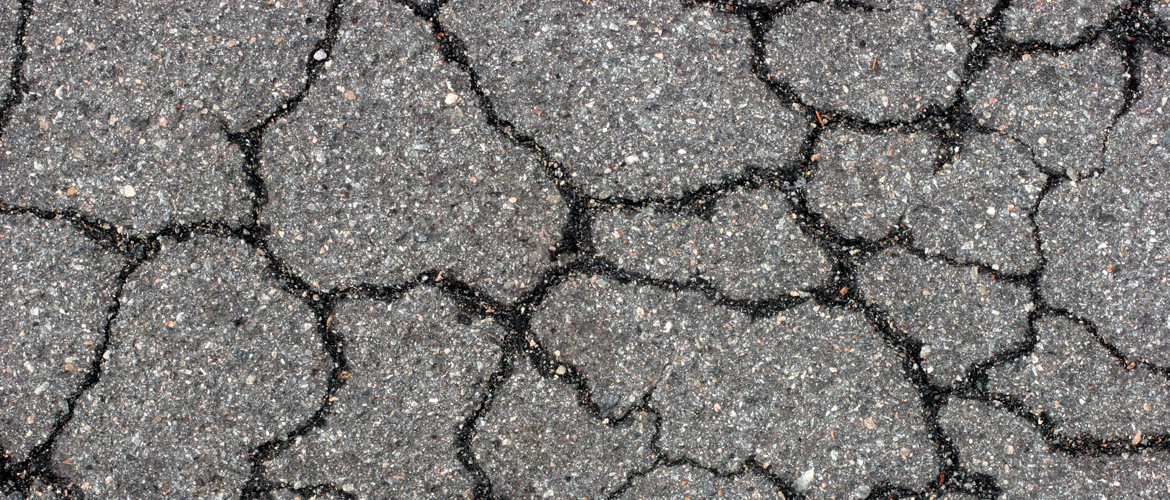And, more importantly, what can I do about it?

When installed properly, asphalt is one of the most durable investments that can be made for your property. However, no matter how skilled your contractor is, no material can ever be deemed foolproof. The following are some potential reasons why your asphalt is beginning to exhibit signs of cracking:
- Too much water in pavement mix. Asphalt really doesn’t need much water to achieve maximum strength. In many cases, the asphalt that is used on residential properties has far too much water. This is a common issue because adding water to asphalt makes it easier to install. However, adding too much water ends up reducing the overall strength of the asphalt. It can result in cracks as the water evaporates and the asphalt proceeds to shrink.
- Dry weather. After the wet asphalt is laid down, it can take a few weeks for the hydration process to be completely finished. If the asphalt isn’t adequately hydrated during the chemical reaction that causes asphalt to go from a liquid to a solid state, cracks can develop and eventually enlarge.
- Improper selection of cement. Cement can be obtained in different grades because different jobs requires asphalts of varying strengths. If the wrong grade is selected and your asphalt isn’t durable enough, it will go on to develop cracks in the future.